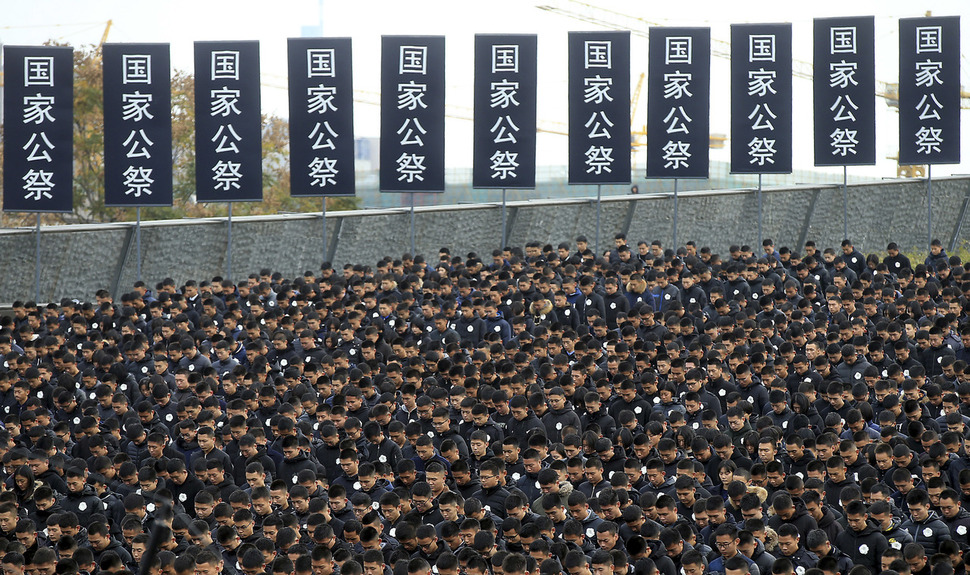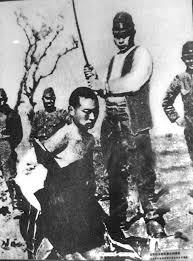 |
|
Chinese citizens bow their heads during a remembrance ceremony for the victims of the 1937 Nanjing massacre on Dec. 13. (Yonhap News)
|
Beijing has kept wartime memories alive to use as leverage against Japan in modern-day disputes, says Peking University professor
“Highest Jinling [Nanjing’s former name] . . . I will never forget.” Eighty young people were dressed in white shirts and dark blue pants with black flowers pinned to their chests as their clear voices recited the lines of the “peace declaration.” A somber crowd of 10,000 was present for the national day of remembrance on Dec. 13 at a memorial for victims of the Nanjing Massacre in China’s Jiangsu Province. Among those dressed in black with white flowers on their chests was President Xi Jinping. Citizens and mourners observed a moment of silence at 10 am as sirens rang out throughout Nanjing. The capital city of the Kuomintang government 80 years ago, Nanjing endured terrible carnage. Japan, started the Sino-Japanese War in July 1937, occupying Shanghai that November before seizing Nanjing on Dec. 13. For six weeks, its troops massacred people, committed sexual assaults, and set fire to buildings; according the Chinese government, an estimated 300,000 Chinese were killed. The Japanese troops fired indiscriminately, not only against captives but also members of the public, and engaged in acts of bayonet practice, decapitation contests, and live burial of victims. Exhibits at the memorial opened with the day’s events offer various records of the unspeakable. In his novel “A Leaf in the Storm,” the Chinese writer Lin Yutang, who lived through the period, wrote, “Not until now, since God created man, had human eyes seen laughing soldiers throw a baby into the air and catch it expertly on the point of a sharp bayonet as it fell and call it sport.”
 |
|
A scene from the Nanjing Massacre
|







